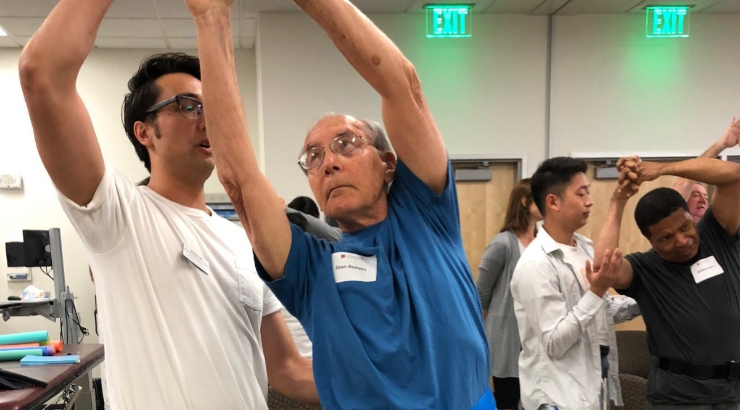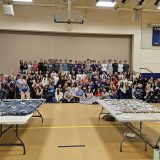
In community clinics, Chapman students learn more than health care Patients at Crean College’s Stroke Boot Camp receive care they might not be able to receive elsewhere
June 9, 2022
Chapman University’s Crean College of Health and Behavioral Sciences provides hands-on graduate-level training for health care professionals in a variety of disciplines. And it turns out these programs aren’t just good for students — they’re also good for the community.
“Crean is very much focused on serving and serving well,” says Dr. Naveen Jonathan, chair of the Department of Marriage and Family Therapy, which operates the Frances Smith Center for Individual & Family Therapy, Chapman University’s oldest public-facing clinic. The center provides low-cost counseling to more than 200 clients every term, providing both valuable training to students and a much needed service to the community.
“Many of the clients would not be able to access therapy services without a clinic like ours,” says Jonathan.
Crean’s newest clinic is the Neuro-Deficit Clinic for COVID-19 Survivors. The clinic provides assessment and treatment for people who are functional, going to work and school, but struggling with cognitive and communication issues. Symptoms such as one’s thinking and remembering being affected by fatigue, trouble speaking, trouble reading, listening and communicating at work, school or home can be indicators of post-acute sequelae of COVID-19, what is colloquially known as “long COVID.”
“Lots of people have lingering effects from COVID-19 and many of them were not severe enough to be hospitalized. Because of this, they may not have been referred for help or assistance,” says Dr. Mary Kennedy, who oversees the clinic.
Individuals in the community who are dealing with cognitive or communication difficulties following COVID are encouraged to contact the clinic at (714) 744-2132 for assessment. In-person and telehealth services are available.

